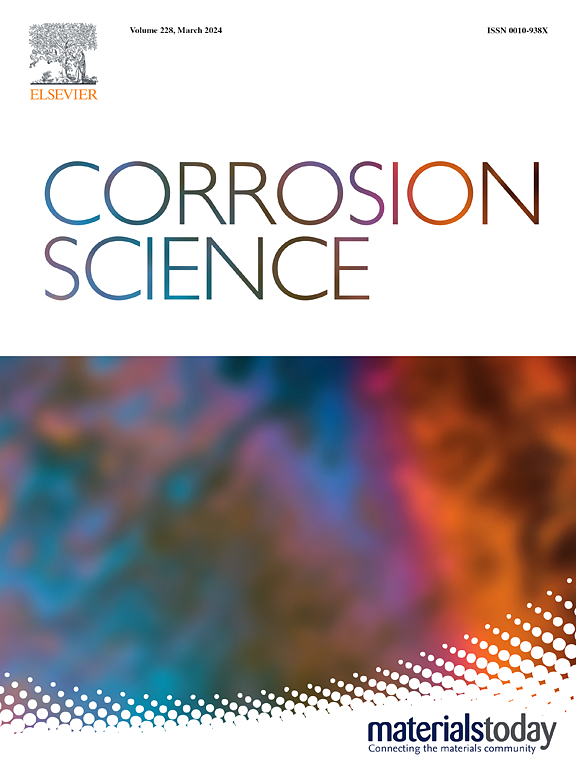Theoretical and experimental study on the effect of magnetic field on the amount of steel bars corrosion
IF 7.4
1区 材料科学
Q1 MATERIALS SCIENCE, MULTIDISCIPLINARY
引用次数: 0
Abstract
The magnetic field force caused by the magnetic field can affect the mass transfer process in the electrochemical reaction, thus affecting the electrochemical corrosion process. The current study aims to theoretically analyze the difference in the mechanism of action of Lorentz force and magnetic field gradient force on electroactive substances in solution media, and to establish theoretical models of steel bars corrosion under vertical magnetic field and parallel magnetic field respectively. The calculation accuracy of the theoretical model of corrosion amount was verified by measuring the corrosion amount of steel bars under different magnetic field strengths through the accelerated corrosion test of steel bars. The electrochemical parameters of polarization curve in the process of steel bar corrosion was measured by electrochemical test, and the influence of magnetic field on corrosion potential of steel bar was discussed. The results show that: 1) With the increase of magnetic induction intensity, the degree of steel corrosion increased, and the influence of vertical magnetic field on steel corrosion was greater than that of parallel magnetic field. 2) With the increase of magnetic induction intensity, the corrosion potential gradually shifts negatively, and the resistance of oxidation products on the surface of steel bar gradually decreases. 3) The theoretical corrosion amount based on MHD was closer to the measured corrosion amount than the theoretical corrosion amount based on Faraday.
磁场对钢筋腐蚀量影响的理论与实验研究
磁场产生的磁场力会影响电化学反应中的传质过程,从而影响电化学腐蚀过程。本研究旨在从理论上分析洛伦兹力和磁场梯度力对溶液介质中电活性物质作用机理的差异,分别建立垂直磁场和平行磁场下钢筋腐蚀的理论模型。通过钢筋加速腐蚀试验,测量了不同磁场强度下钢筋的腐蚀量,验证了腐蚀量理论模型计算的准确性。通过电化学试验测定了钢筋腐蚀过程中极化曲线的电化学参数,并讨论了磁场对钢筋腐蚀电位的影响。结果表明:1)随着磁感应强度的增大,钢的腐蚀程度增大,垂直磁场对钢腐蚀的影响大于平行磁场。2)随着磁感应强度的增大,腐蚀电位逐渐负移,钢筋表面氧化产物的电阻逐渐降低。3)基于MHD的理论腐蚀量比基于Faraday的理论腐蚀量更接近实测腐蚀量。
本文章由计算机程序翻译,如有差异,请以英文原文为准。
求助全文
约1分钟内获得全文
求助全文
来源期刊

Corrosion Science
工程技术-材料科学:综合
CiteScore
13.60
自引率
18.10%
发文量
763
审稿时长
46 days
期刊介绍:
Corrosion occurrence and its practical control encompass a vast array of scientific knowledge. Corrosion Science endeavors to serve as the conduit for the exchange of ideas, developments, and research across all facets of this field, encompassing both metallic and non-metallic corrosion. The scope of this international journal is broad and inclusive. Published papers span from highly theoretical inquiries to essentially practical applications, covering diverse areas such as high-temperature oxidation, passivity, anodic oxidation, biochemical corrosion, stress corrosion cracking, and corrosion control mechanisms and methodologies.
This journal publishes original papers and critical reviews across the spectrum of pure and applied corrosion, material degradation, and surface science and engineering. It serves as a crucial link connecting metallurgists, materials scientists, and researchers investigating corrosion and degradation phenomena. Join us in advancing knowledge and understanding in the vital field of corrosion science.
 求助内容:
求助内容: 应助结果提醒方式:
应助结果提醒方式:


